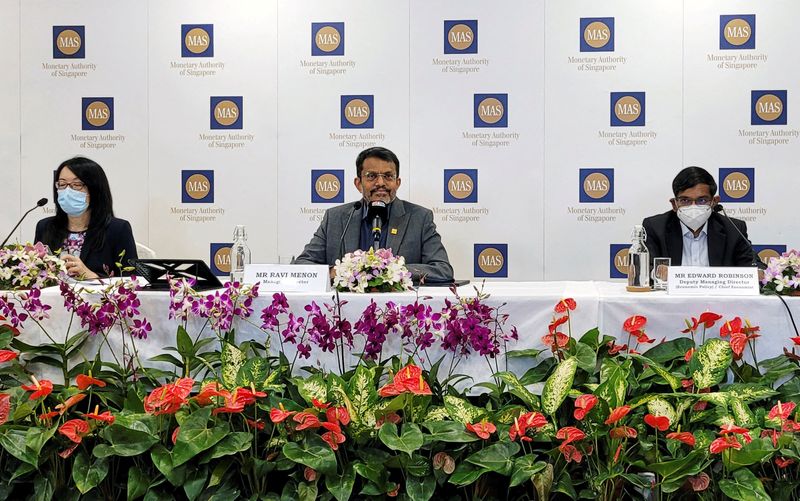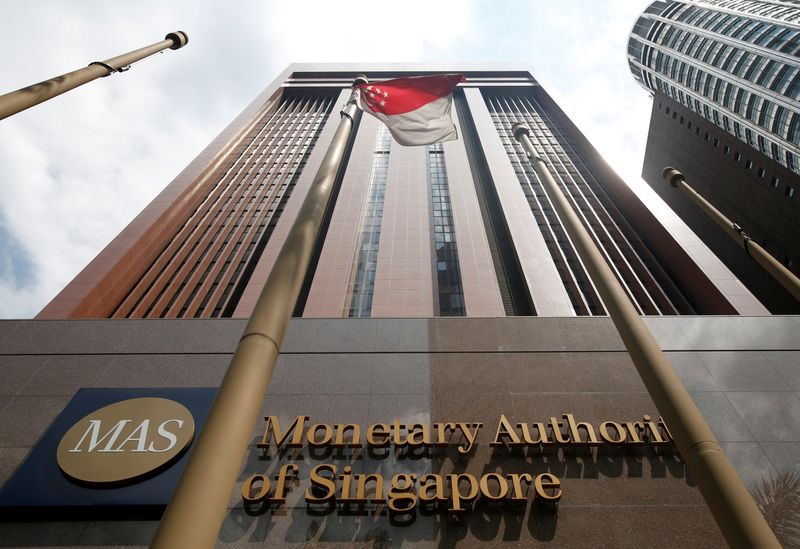By Anshuman Daga and Chen Lin
SINGAPORE (Reuters) - Singapore's economic growth is expected to moderate further next year, tracking a slowdown in its major trading partners, while global inflation is expected to ease in 2023, the head of the city-state's central bank said on Tuesday.
"We are seeing a surge in inflation globally because a robust demand recovery post-COVID has run into supply-side frictions and, more recently, war-related disruptions," said Ravi Menon, the managing director of the Monetary Authority of Singapore (MAS).
"Rising inflation has no doubt dented business and consumer confidence, but not yet to a degree that would lead to a severe downturn this year," Menon told a news conference after the MAS published its annual report.
Last week, Singapore tightened its monetary policy in an off-cycle move that came just after Canada's surprise 100 basis point interest rate hike and before an out-of-cycle rate hike in the Philippines. [L1N2YV00K]
"Taming inflation is like trying to slow down a speeding car on a gentle slope. It takes a combination of forcefulness and calibration," Menon said.
"Inflation is expected to ease in 2023 as major central banks withdraw policy accommodation and supply challenges are addressed," the MAS said in its annual report.
Globally, policy makers are ramping up their battle against mounting inflation, driven by supply constraints caused by the Ukraine war and the pandemic.
Referring to Singapore, Menon said: "The extent of the growth moderation will depend in part on how the scenarios for the global economy will pan out. As of now, we expect neither a recession nor a stagflation in Singapore next year," he added.
The Southeast Asian financial hub, seen as a bellwether for global growth, has eased most of its pandemic-related local and travel restrictions since early April.
The central bank reiterated that it expects Singapore's gross domestic product growth to come in at the lower half of the 3-5% range forecast for 2022, while the core inflation projection was revised last week to between 3–4% for the year, higher than an earlier forecast.

Singapore's latest monetary tightening was its fourth in the past nine months.
"I'm glad we moved faster, which has put us in a better position. But doesn't mean we're out of the woods, we too are facing an inflation problem," Menon said.
